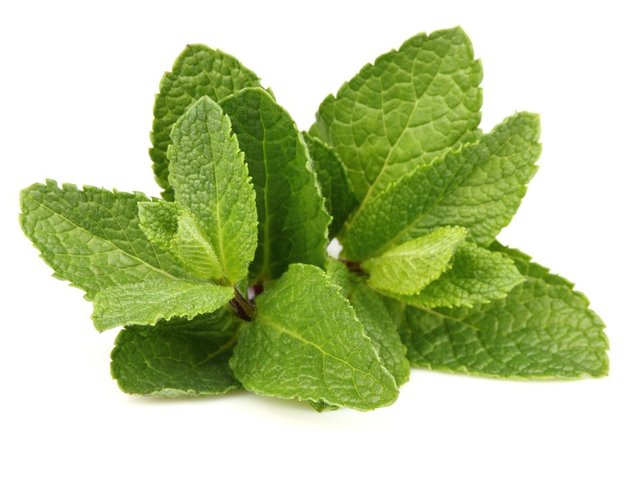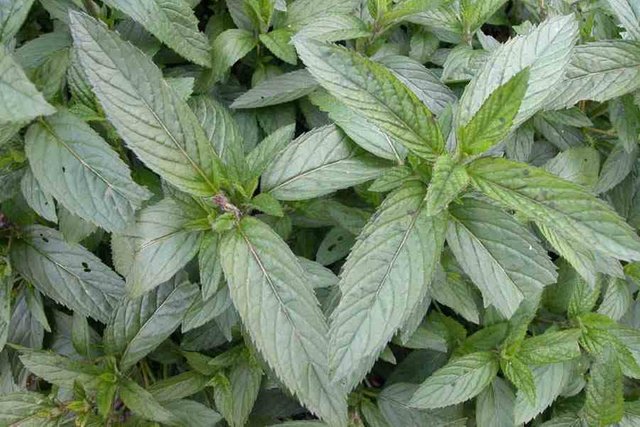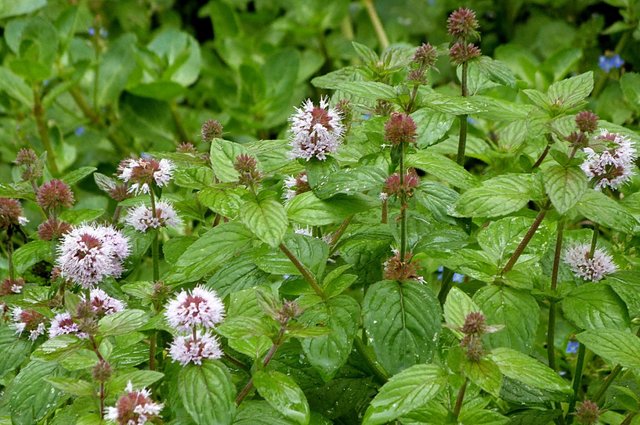Wonder Plant #005 - Mint (Mentha Piperita, Spicata & Aquatica), the menthol plants
*Remember to always consult a doctor if you plan to medicate with natural plants. Don't take any of this for granted, do your own research.
Wonder Plant #005 - Mint (Mentha Piperita, Mentha Spicata & Mentha Aquatica), the menthol plants
According to the legend, Mint finds it's origins in the mystical tale of the nymph Menthe, daughter of the river god Cocyte. Pluto was in love with Menthe and his wife, Proserpine, changed her into a plant out of jealousy.
1. Mentha Piperita

Also referred to as peppermint, lamb mint and brandy mint, but different from Mentha Spicata, or spearmint, this plant is a hybrid perennial that has the characteristic smell of menthol and many medicinal properties. It is a very popular plant in candies, chewing gum and drinks. Although mint has been used for thousands of years by humans, Peppermint has only been identified around the year 1700.
Flowering: From July through September
Properties and uses: The medicinal part of this plant are it's leaves, either fresh or dried. Their most common usage include:
- Anodyne: alleviate pain
- Antispasmodic
- Carminative: expelling gas from the stomach or intestines so as to relieve flatulence or abdominal pain or distension
- Refrigerant
- Stomachic
- Tonic
- Irritable Bowel Syndrome
- Menstrual cramps
- Prepared as tea or as an oil:
- Nervousness
- Insomnia
- Cramps
- Coughs
- Migraines
- Poor digestion
- Heatburns
- Nausea
- Abdominal pain
- Headaches
- Aphrodisiac (in larger amounts)
- Itchy skin: apply fresh crushed leaves, or in a bath.
Preparation and dosage: it's preferable to harvest the leaves under the sun on a hot day, before flowers appear.
- Infusion: 2-3 tsp. of leaves infused in 1 cup of water. Use up to 2 cups a day for a treatment of maximum 8 to 12 weeks. To avoid heart complications, allow 1 or 2 weeks between treatments.
- Oil: use 3-4 drops on a sugar cube in warm tea or in a glass of water.
- Tincture: take 10-50 drops depending on your age and the intensity of symptoms.
2. Mentha Spicata

Mentha Spicata is commonly named Spearmint, or sage of Bethlehem, and is widely used in cooking, infusions, candies and alcoholic beverages. It's flavour is different from Peppermint, but it still has a dominant menthol aroma. It can replace Peppermint as they both have very similar medicinal properties.
Flowering: From July to September
Properties and uses: The medicinal part of this plant are it's leaves, either fresh or dried. Their most common usage include:
- See Peppermint
- Antispasmodic
- Carminative
- Diuretic
- Stimulant
- Stomachic
- Painful urination
Preparation and dosage: it's preferable to harvest the leaves under the sun on a hot day, before flowers appear.
Infusion: 1 tsp. of herbs in 1 cup of water for about 30 minutes.
Oil: use 2-4 drops on a sugar cube in warm tea.
Tincture: take 10-50 drops depending on your age and the intensity of symptoms.
3. Mentha Aquatica

Mentha Aquatica, or Water Mint, grows in watery regions and can be used as an alternative to Peppermint as they share most medicinal properties.
Flowering: From July to September
Properties and uses: The medicinal part of this plant are it's leaves, either fresh or dried. Their most common usage include:
- See Peppermint
- Stop the vomiting of blood
Preparation and dosage: it's preferable to harvest the leaves under the sun on a hot day, before flowers appear.
Infusion: 2-3 tsp. of leaves infused in 1 cup of water. Use up to 2 cups a day for a treatment of maximum 8 to 12 weeks. To avoid heart complications, allow 1 or 2 weeks between treatments.
Oil: use 3-4 drops on a sugar cube in warm tea or in a glass of water.
Tincture: take 10-50 drops depending on your age and the intensity of symptoms.
Useful Links:
Peppermint: it's health benefits and precautions
Surprising facts about Spearmint
Sources:
- All definitions were taken for the Merriam Webster website: https://www.merriam-webster.com
- Prevention Magazine Health Books. Complete Book of Medicinal Cures. 1994. Berkley Health Reference. p. 360
- Lust, John. The Herb Book. 1974. Bantham Books. p. 275
Images (in order of appearance):
- i2.wp.com/worddirection.com/wp-content/uploads/2016/06/Mentha.jpg
- keyserver.lucidcentral.org/weeds/data/media/Images/mentha_spicata/menthaspicata3gj.jpg
- warehouse1.indicia.org.uk/upload/o_1ar8csoff192v12h1197a1t90f198.jpg
Edits:
- 23/6/17 - legend of the nymph Mint
- 24/6/17 - tags
- 28/6/17 - formatting
What an excellent post again!
hi, nice post! Lets grow. upvote and follow prtctanimal, help us create awareness!